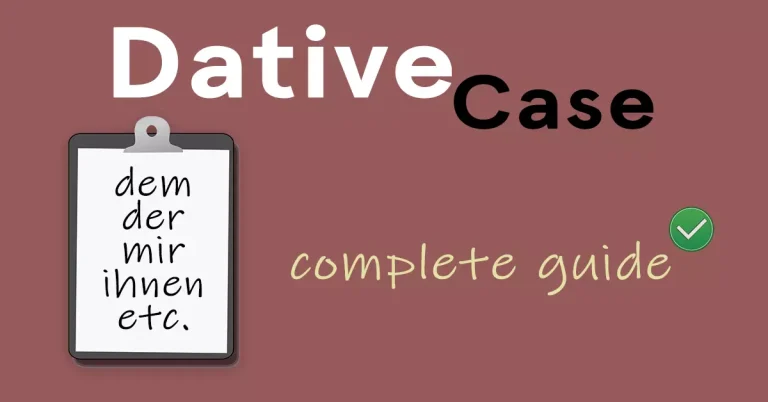
German Dative Case (Complete Guide for Beginners A1 – B1)
In this article I’ll show you exactly what the German dative case is and when and how to use it. If you’re struggling to understand what it is and what the difference from the accusative case is, this article is for you! What it is a case? There are 4 cases in German: nominative, accusative, … Read more
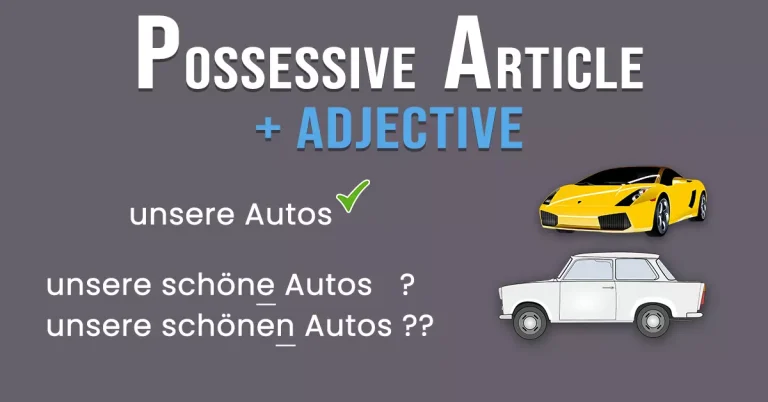
Adjektivdeklination with Possessive/Negative Articles
Meine schöne/schönen Bücher? Which one is correct? German learners at all levels get this wrong. What adjective endings do we need to give adjectives after the possessive articles (e.g. mein)? The strong endings, just like with the indefinite articles? Or the weak endings, like with the definite articles? You will not like the answer: It … Read more

N-Deklination (Complete Guide)
In this article I will show you everything you have to know about the N-Deklination. It’s much easier than most learners of German think. If you memorize a handful of suffixes (endings) as well as 5-10 additional nouns you’re good to go! Deklination (declension) basically means that you have to change the endings of articles, … Read more

N-Deklination (Complete List)
This is full list of the most common German nouns that have to be declined according the N-Deklination. Many of these nouns are people (e.g. professions, nationalities) and animals. Most of them end in certain suffixes (endings) that you can try to memorize. These include “-ent“, “-ist” and most importantly the masculine nouns that end … Read more
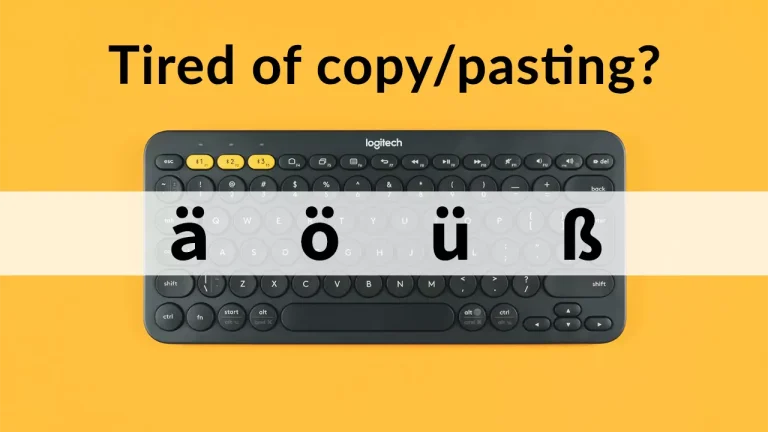
How to Type German letters ä, ö, ü and the ß on your Keyboard
Do you need to write texts in German? Do you copy the German Umlauts (the characters ä, ö, ü) and the Eszett (ß) from other text files or from websites? Stop it, right now!! 🙂 There’s a better way! And I’m definitely not talking about the weird number combinations you can never remember. You can … Read more
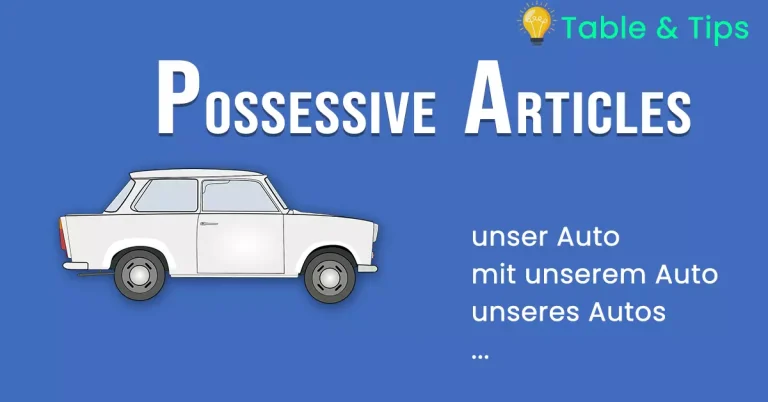
German Possessive Articles (Table & Tips)
The German possessive articles (or: possessive pronouns, possessive adjectives) can look intimidating at first. But once you realize that they behave exactly like the indefinite article “ein/eine/ein” and the negative articles “kein/keine/kein”, it will all make sense! The first three possessive articles are so close to the indefinite article, we only need to add one … Read more
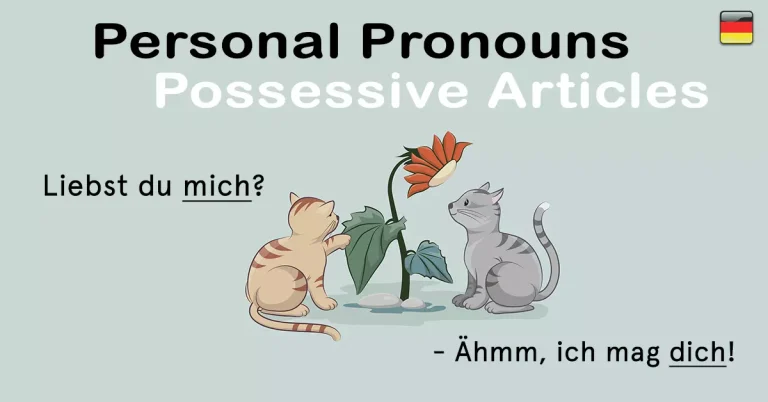
German Personal Pronouns and Possessive Articles
The German personal pronouns can be confusing when you’re first starting to learn the language. This is the complete table and some tips for personal pronouns and the possessive articles. Nominativ Akkusativ Dativ Possessivartikel ich mich mir mein, meine … du dich dir dein, deine … er/sie/es ihn/sie/es ihm/ihr/ihm sein, seine …ihr, ihre …sein, seine … Read more
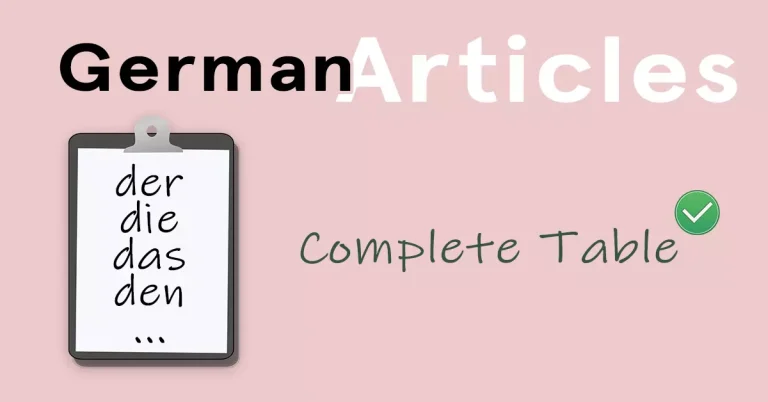
The German Articles (der, die, das …) – Table of all Forms
German uses articles before nouns. You need to change the articles according to which gender (masculine, feminine, neutral) and which case (nominative, accusative, dative, genitive) it is used in. Lastly, it also depends on the number (singular vs. plural). Luckily, all genders are the same in the plural, which gives it 4 categories (masculine, feminine, … Read more
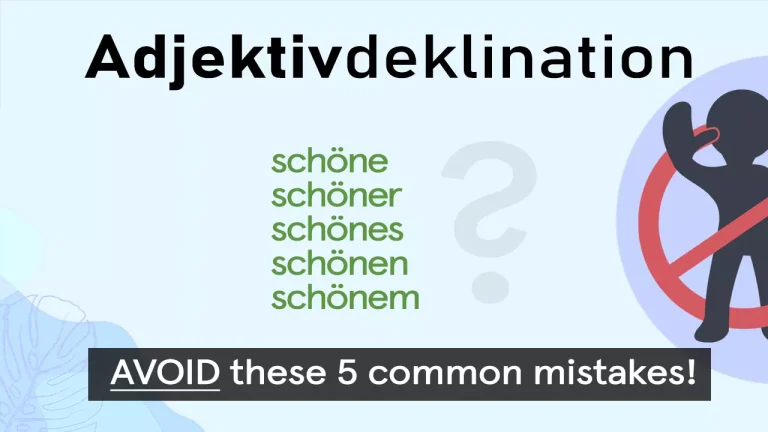
Adjektivdeklination: Avoid the 5 most common mistakes! (A2)
In this article I will give you 5 tips (or: rules) to avoid the most common mistakes regarding the adjective endings (Adjektivdeklination). Even if you’re above the A2 level you are quite likely to make some of the these mistakes. Table of Contents: The Adjektivdeklination is one of the most dreaded topics in German grammar. … Read more
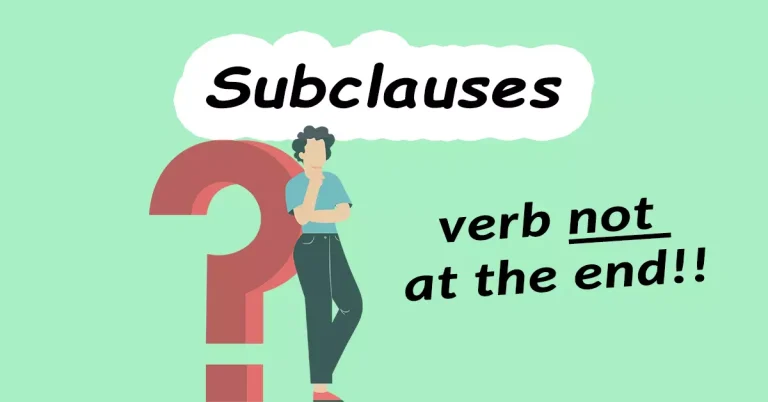
German Subclause: Verb NOT at the end?
So you’ve just come across a German subclause in which the verb is not at the end – against all the rules you’ve learned? This article will tell you all you need to know about such sentences. When is the finite verb not at the end of a German subordinate clause? This happens in subordinate … Read more
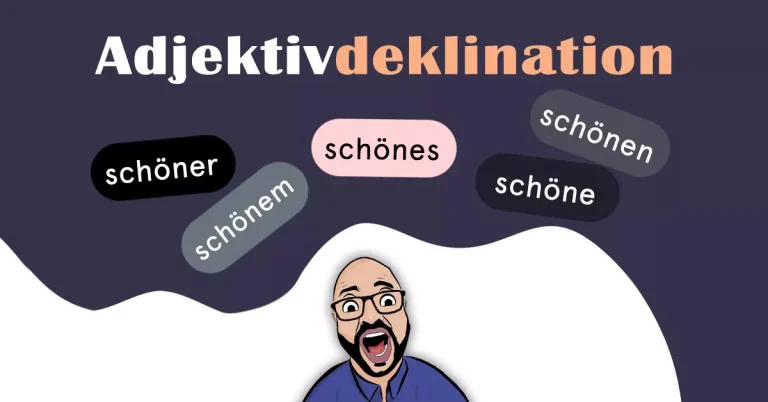
Adjektivdeklination – All possible Forms and Endings (+PDF)
One of the most feared topics in German grammar is the Adjektivdeklination. You need to change not only articles, but also adjective endings according to which gender (masculine, femininem neutral) and which case (nominative, accusative, dative, genitive) it is used in. Lastly, it also depends on the number (singular vs. plural). Luckily, all genders are … Read more
![The German Präteritum Tense (Complete Guide) [A1-C2]](https://www.deutschmm.com/wp-content/uploads/2022/12/prateritum-banner-768x402.webp)
The German Präteritum Tense (Complete Guide) [A1-C2]
This article teaches you all you need about the second most important German past tense: the German Präteritum tense. I’ll show you exactly how and when to use it. For spoken German you’ll need it a lot less than you might think. Präteritum tense or Perfekt tense? In your A1 and A2 German language course, … Read more
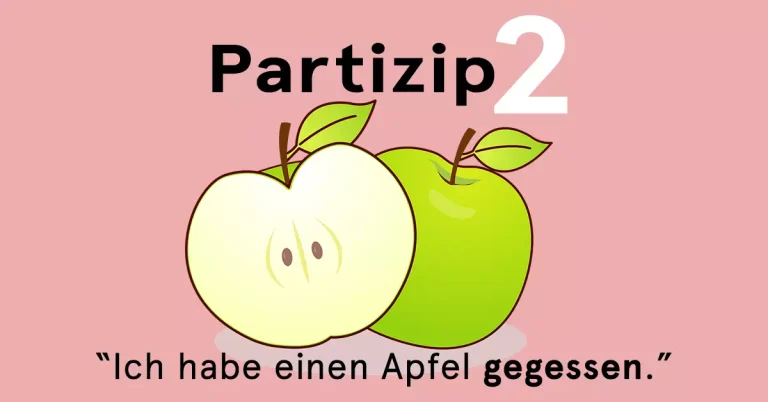
The German Partizip 2 – Forms & Usage
In this article, you will find everything need to know about the German Partizip 2: its usage (Perfekt, passive and as an adjective), how it’s formed and the most important irregular forms. I’m sure you’ve heard of the Partizip 2! This words comes up a lot in every German class and course book. Most importantly, … Read more

Zustandspassiv
With this article you will finally understand what the Zustandspassiv is as well as how and when to use it! I’ll show you exactly what the difference to the other passive forms (Handlungspassiv) is. It’s definitely a lot easier than you probably think. The main difficulty is that there is no direct equivalent in many … Read more
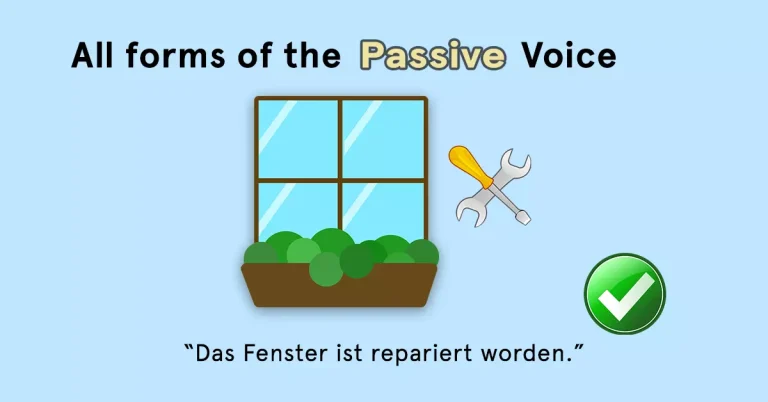
Passive Voice In German – All tenses and forms
This article provides you with all the German passive forms (Handlungspassiv) – on their own as well as in combination with modal verbs and/or in subclauses. Table of Contents In a previous article I showed you the fundamentals of the passive voice in German grammar. So if you are not sure what the passive is … Read more
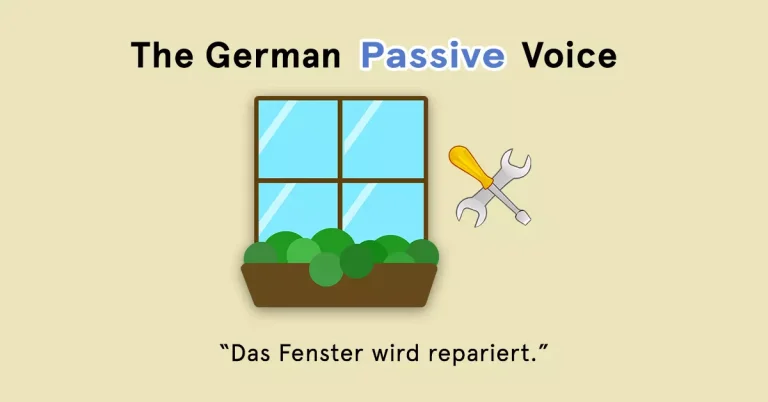
Passive Voice In German (Part 1) – Quick Guide for Beginners
This article teaches you all the basics on the passive voice in German. We’ll talk about the formation, the meaning and its usage with lots of easy-to-understand examples. I hope you guys are really ACTIVE learning German, but let’s be PASSIVE today :), or rather let’s take a look at the passive voice in German, … Read more